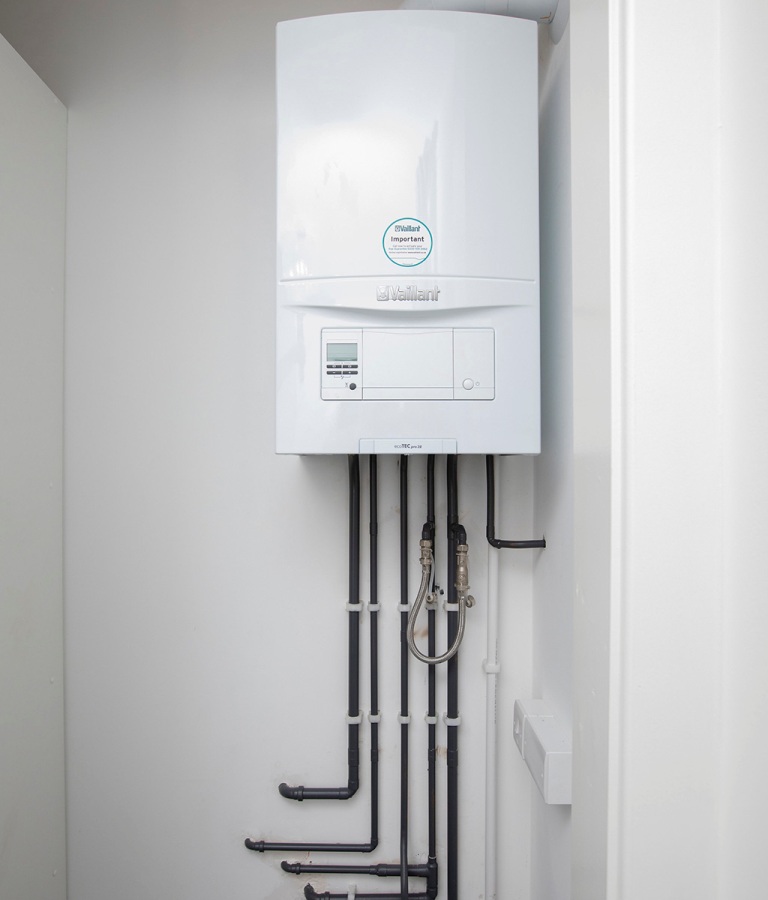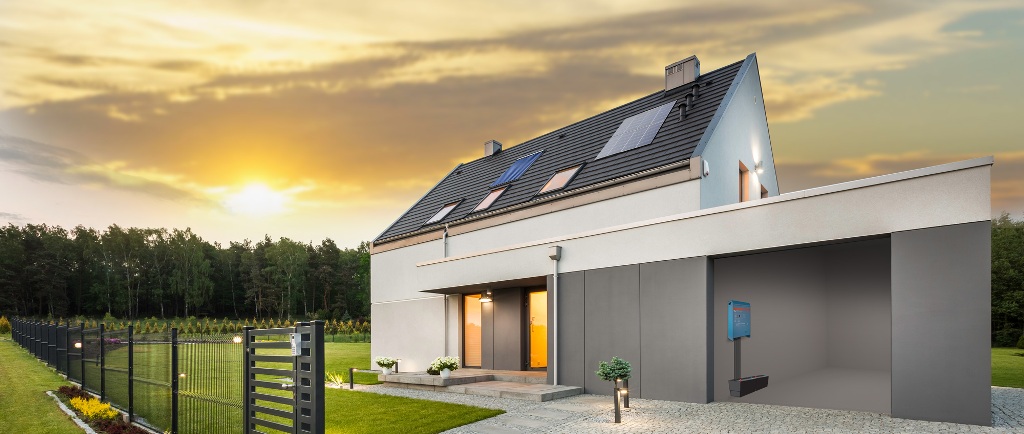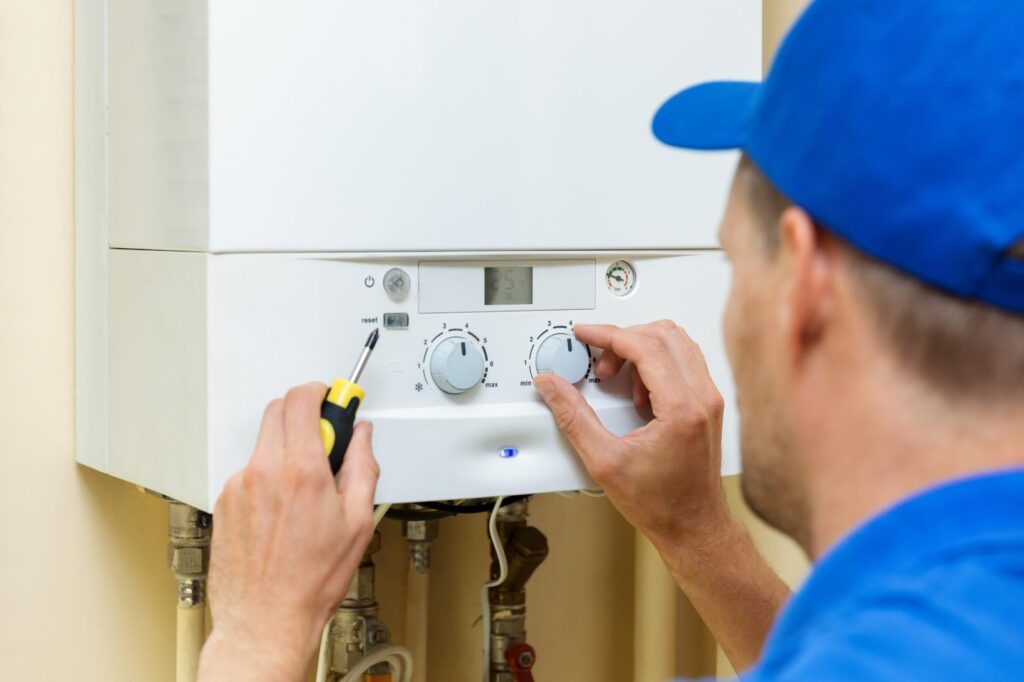Why aren’t house builders more experimental with the types of heating they put into houses? Why do office buildings always seem to have some sort of hot/cold air conditioning system? The reason is that each strikes a happy compromise between energy efficiency and heat efficiency.
This article covers the best options for heat-dissemination (the most efficient heating system) and the best options for energy-efficient heating. It will look at stand-alone devices and entire heating systems.
Forced-Air Heating As Often Seen In Larger Office Buildings
Typically, if warm air is circulating the room, then it warms evenly and less heat is wasted. In terms of heating efficiency, it is in the middle, but in terms of energy efficiency, it is pretty good. It is easier to heat a room with forced-air heating than it is to cool a room with a forced-air system.
If you want to learn more about heating systems, then visit this website.
Problems with efficiency often occur when there is an interruption in the airflow. The most common reason why forced-air systems are wasteful is that somebody keeps opening and closing doors and windows. The warm air that has been gently circulating the room escapes and the system has to work harder to regain what was lost.
However, forced-air systems are good at making a room “feel” comfortably warm, especially when compared to gas-powered radiator systems.
The Most Efficient Heating System
Larger buildings could use fan-blown gas-fire devices but putting one in every room is costly and is frankly unnecessary. Most commercial buildings do not need to be heated so quickly as to require fan-blown gas-fire devices. The best compromise is a forced-air system of some type that heats air and passes it around each room in the building.

Things differ slightly in larger. more open spaces, such as warehouses, where heat recycling with things like heat pumps may be a better option.
Heat pump systems are fairly efficient because they recycle warm air. Buying them for a domestic house is rather expensive. They are also a little unnecessary because the savings on running costs would be relatively small.
Hot-water radiators, what most people refer to as “gas-powered central heating” are common in domestic houses. These strike a nice balance between energy efficiency and heat-dissemination efficiency. Plus, these systems can often double as hot-water heating systems, which is handy for domestic houses.
The Most Energy Efficient Heating Systems
Electricity-powered oil radiators are the most energy-efficient heating systems. A small coil is heated within the radiator that heats the oil in the radiator. The energy required to heat the oil is very slight.
The problem is that without some sort of fan, the heat doesn’t travel very far. If the oil radiator were changed to enable it to emit higher volumes, (like a hot-water-radiator), then far more energy would be required to keep the oil warm.
Stand-alone oil radiators are the most energy-efficient, but gas-powered central heating is the most economical choice. Electricity-powered oil radiators take too long to heat up.
This is inconvenient for domestic houses, and they can be dangerous too. Some of them can heat to temperatures that can scald people. You also shouldn’t put clothing on oil radiators, whereas it’s safe to dry laundry on hot-water natural-gas-powered radiators.
Energy efficiency Saves Money Under Certain Circumstances
Despite that we are all supposed to push an earth-first attitude, the fact is that the most efficient heating systems are not energy efficient. Then, you have to throw in the money aspect. Energy-efficient devices cost less to run but more to buy and the most efficient heating systems are also the most wasteful.

However, the way you use the most efficient devices depends on how wasteful they are.
For example, if you blazed a gas fan heater on full blast, then you could heat a room in minutes. You could then keep it warm at the lowest possible price by turning it off and switching to a more energy-efficient device, such as an electric-powered radiator.
The most efficient systems are only wasteful because people use them longer than is required.
There are many different renewable energy methods for heating a house and a business. At the moment their costs are prohibitive. They are still not as efficient at warming rooms (not as quick) as non-renewable heating methods.
Some people buy renewable heating systems with the hopes they will eventually pay for themselves with savings. This is yet to be seen and won’t happen until renewable systems come down dramatically in price.
What About Affecting Factors?
Your heating system will require less effort and energy to maintain a warm air temperature if you keep your curtains closed at night and open during the day. How often your doors are open to the outside world and how well your rooms are insulated, are going to affect how efficiently your heating system works (both in terms of how quickly it heats, and how economically it heats).
The most wasteful element of all is how we use heating systems. Even a small gas fire can be used inefficiently and cost too much in energy and money. On the other hand, a very efficient system can be used in short bursts to heat a room in an economical and energy-efficient manner.
Some consider furnaces to be wasteful in houses. But there are some oil-burning or even coal-burning furnaces that can be the most efficient way to heat a large house.
Do Not Confuse Energy Efficiency with Heating Efficiency

If you are looking for the most energy-efficient way to heat a room, then electricity-powered oil radiators will do the job. Note though, they are painfully slow and they need to be left on in a room all the time to have any noticeable effect.
The most efficient heating system is any form of fan-blown gas-fire device. In terms of entire heating systems, then a forced-air system is the most efficient for larger buildings. Gas-powered central heating is best for smaller domestic buildings.
There are plenty of other interesting and useful articles on this site. Take a look at them; there is everything from wedding planning articles to articles on waffle makers.






